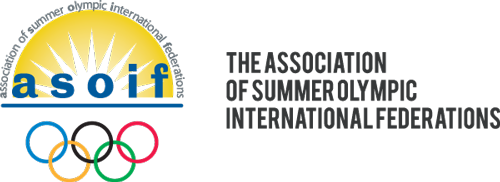ASOIF statement on World Athletics’ decision to award prize money at the Olympics
On 10 April 2024, Association of Summer Olympic International Federations (ASOIF) member federation World Athletics announced its decision to introduce prize money for Olympic gold medallists in each of the 48 athletics events at Paris 2024 and for all medallists at Los Angeles 2028. With World Athletics becoming the first International Federation (IF) to do so, this decision has sparked reactions from ASOIF’s membership.
ASOIF was neither informed nor consulted in advance of the announcement, which was made one day after the ASOIF General Assembly and during SportAccord. As a matter of principle, ASOIF respects and defends the autonomy of each and every member federation. However, when a decision of one IF has a direct impact on the collective interests of the Summer Olympic IFs, it is important and fair to discuss the matter at stake with the other federations in advance. This is precisely why ASOIF was created more than 40 years ago, with the mission to unite, promote and support its members, while advocating for their common interests and goals.
ASOIF has historically taken a close interest in the general issue of athlete compensation, particularly within the context of Olympic Agenda 2020 and vis a vis the professional leagues since 2014.
During the last days, ASOIF’s membership has expressed several concerns about World Athletics’ announcement.
First, for many, this move undermines the values of Olympism and the uniqueness of the Games. One cannot and should not put a price on an Olympic gold medal and, in many cases, Olympic medallists indirectly benefit from commercial endorsements. This disregards the less privileged athletes lower down the final standings.
Second, not all sports could or should replicate this move, even if they wanted to. Paying prize money in a multi-sport environment goes against the principle of solidarity, reinforces a different set of values across the sports and opens up many questions.
If the Olympic Games are considered as the pinnacle of each sport, then the prize money should be comparable to, and commensurate with, the prizes given in the respective top competitions of each sport. This is technically and financially unfeasible.
Furthermore, the International Olympic Committee (IOC) is the owner and primary rights holder of the Olympic Games. IFs establish and enforce the competition rules at the Games.
While some National Olympic Committees and governments have put in place schemes to reward athletes for outstanding performances at the Olympic Games, these are for purposes of national pride and are applied consistently across all the sports at the Olympic Games.
Finally, there has been consensus that Olympic revenues should, at least for the more commercially successful and financially independent IFs, be invested as a priority into development and integrity matters. Development and integrity are the principal areas where IFs can distinguish themselves from commercial operators and promoters.
ASOIF fully agrees that athletes are at the centre of the Olympic Movement, and play a critical role in the success of any Olympic Games. However, it appears that World Athletics’ latest initiative opens rather than solves a number of complex issues.
ASOIF will raise these concerns with World Athletics and will continue to promote dialogue amongst its members and the IOC.
Unity and solidarity among ASOIF’s membership will remain crucial to ensure a healthy future of sports governance and the Olympic Movement at large.

